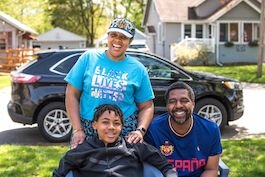Editor’s Note: The Voices of Youth Kalamazoo program is a collaboration between Southwest Michigan Second Wave and KYD Network, underwritten by the Stryker Johnston Foundation. Look for our upcoming Voices of Youth Kalamazoo stories and projects by area students that will be published in July.
Dontray Hemphill was at the barbershop he co-owns when the police came around.
They were looking for his nine-year-old son, DJ. He had been in a fight.
“Long story short, a young lady started an incident with him, she hit him first, he returned the hit, he returned the push. Nobody harmed, no nothing. It was a white-Black thing. And they tried to lock my son up and press charges on him — yes, at nine years old,” Hemphill says.
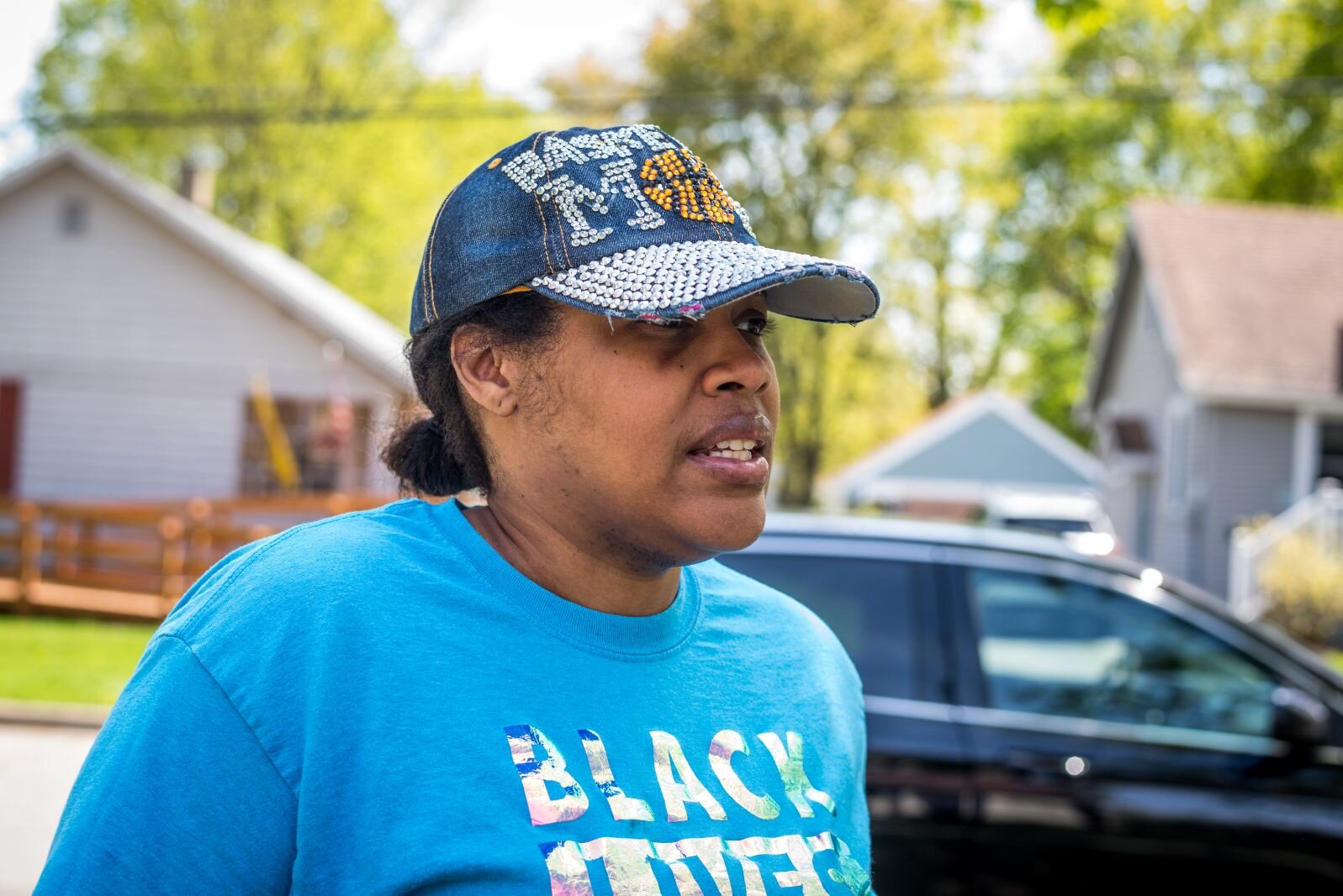
Ebony Hemphill says her first thought when she heard that the cops were looking for her son was, “Can they really do that?”
A friend told her, “‘Yeah they can do that. The age of reason is seven in Michigan.'”
It’s a belief, a long part of the legal code, that goes back to the canon law of the Catholic Church. The “age of reason” is when a child should know right from wrong. This became part of U.S. and Michigan law, meaning that at seven and older a child can be held liable in court for their actions.
Ebony says, sitting next to now-14-year-old DJ, to his mortification, “Well, this guy (at seven) just started wiping his butt good, do you think he’s really got his mind together? Okay — at seven? That’s not really cool.”
Luckily for all, there was a video of the kids’ fight, which showed the girl — around 10 years old — started it. The matter was dropped and no child was involved in any traumatic legal proceedings.
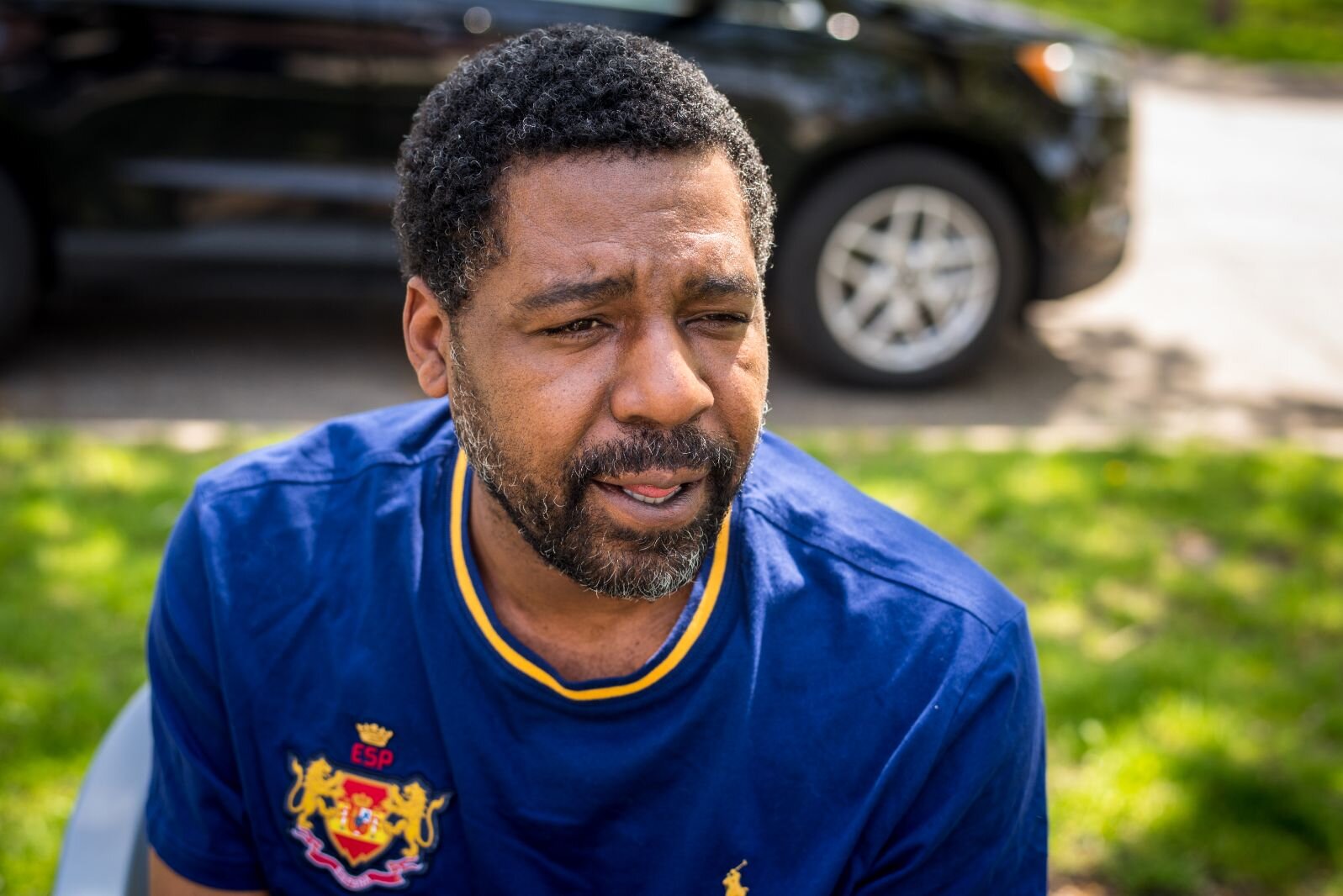
“They will cook-and-book you,” Dontray says, at age seven and up. “Trust me… They came to my job, to talk to me about my son. They were really, really serious about trying to get their hands on my son. And this was his first time, ever, ever, ever being in trouble. He’s nine years old. He’s a perfect student, a 4.0 student, never been in trouble.”
The video was “the only thing that saved my son,” Dontray says. “Because once again, you have the powers-that-be looking at the dynamics of the case, like I said, was Black boy, white girl.” If it weren’t for the video, “He’d probably be in some home right now. But by the grace of God, by advocating and video tape, we were able to beat the case.”
Youth Juvenile Justice Fellows
Ebony says the situation made them think, “How can we help other people, how can we share this information? A lot of people don’t know, they still don’t know.”
A lot of people don’t know that children as young as seven can face armed police officers and cuffs, courts, and a stint in the juvenile home, plus fees and fines that can last into adulthood if not paid.
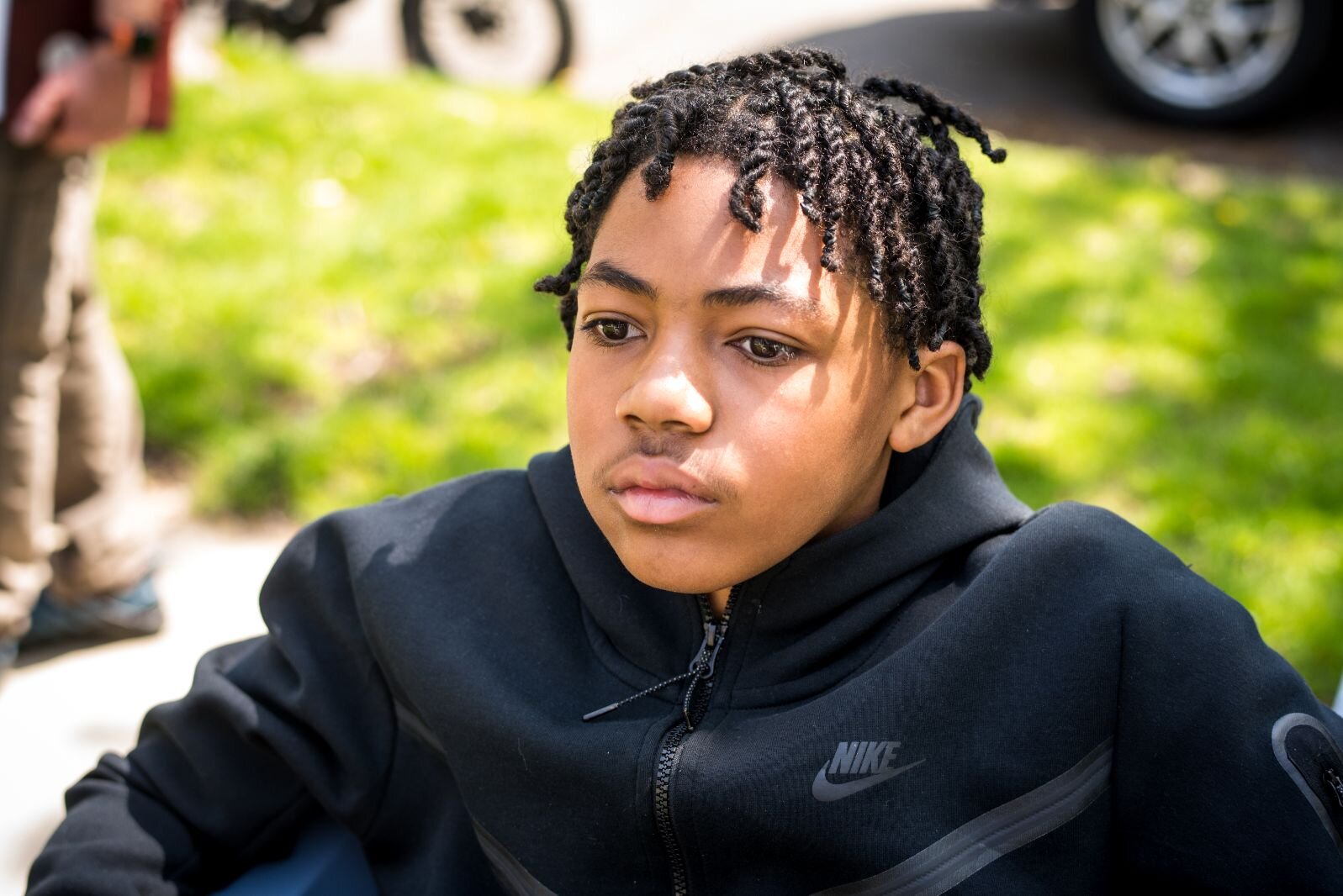
At what age should we draw the line? What offenses need the full force of the law, and what need counseling or other diversions?
In what context does the old saying, “boys will be boys” come into play?
Western Michigan University’s Lewis Walker Institute organized the Youth Juvenile Justice Fellows in the fall of 2021 to take a look at these questions, and to advocate for change. It was formed through a grant from the Public Welfare Foundation.
Parents like the Hemphills have gotten involved. But mostly, the Fellows are the youth impacted by the system, who are speaking up for reform, from Kalamazoo to Lansing.
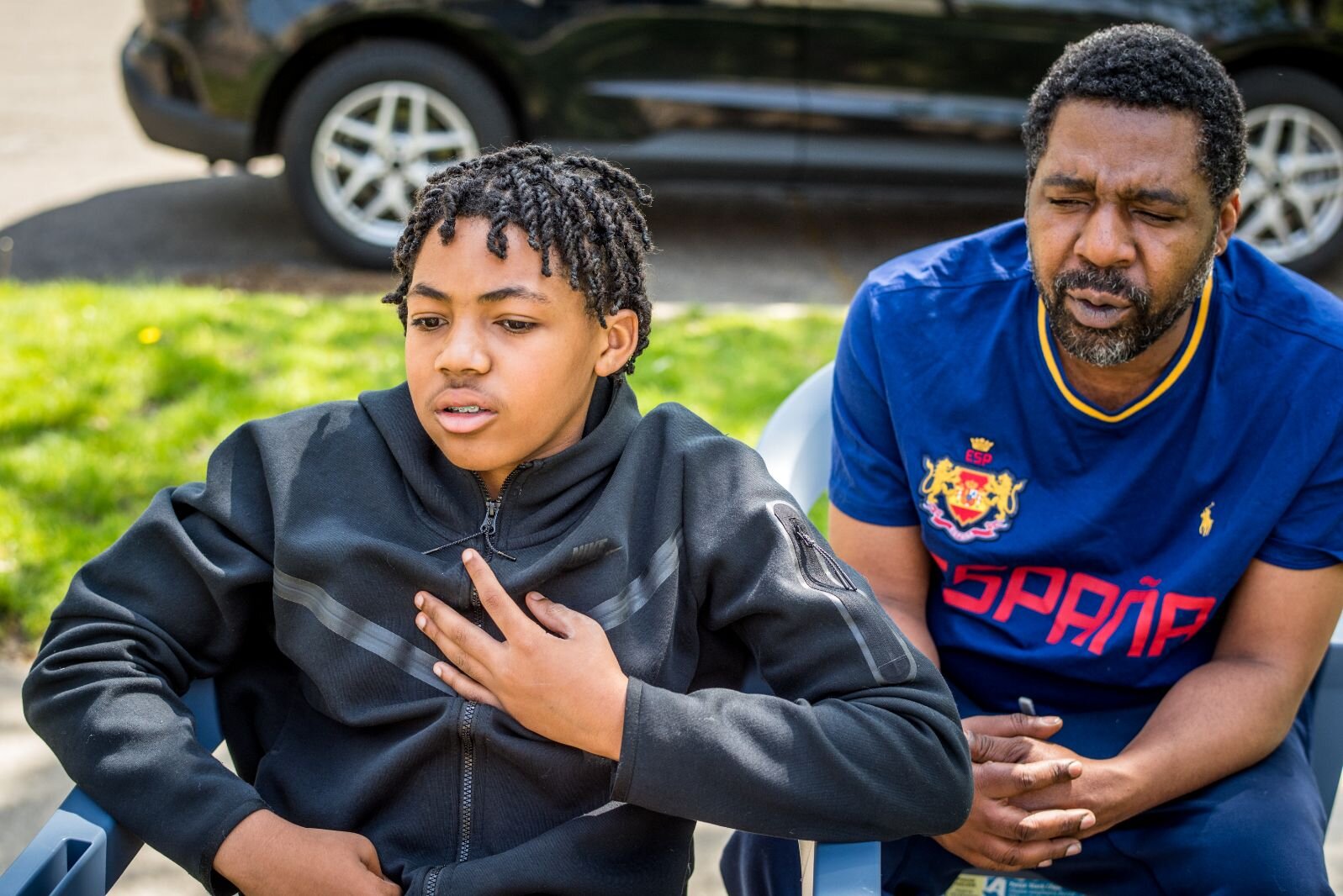
Dontray credits institute director Luchara Wallace with advocating for DJ and helping to get the charges dropped. He’s since become a lead parent member and has formed a partnership between his organization, BLOCKS Club, and the Fellows.
Hemphill cofounded BLOCKS (Building Leaders, Organizing Community with Keys to Succeed) with Ed Genesis as a community effort to stop gun violence on the Northside.
Hemphill has been on the wrong side of the law and has a deep personal drive to get youth away from the criminal life and from entanglement with the law. With BLOCKS, “We try to teach them how to be that rose that grew from the concrete, man. Being able to deal with it, you have to be from it, you have to be a part of it already, to know the hardship that comes with this.”
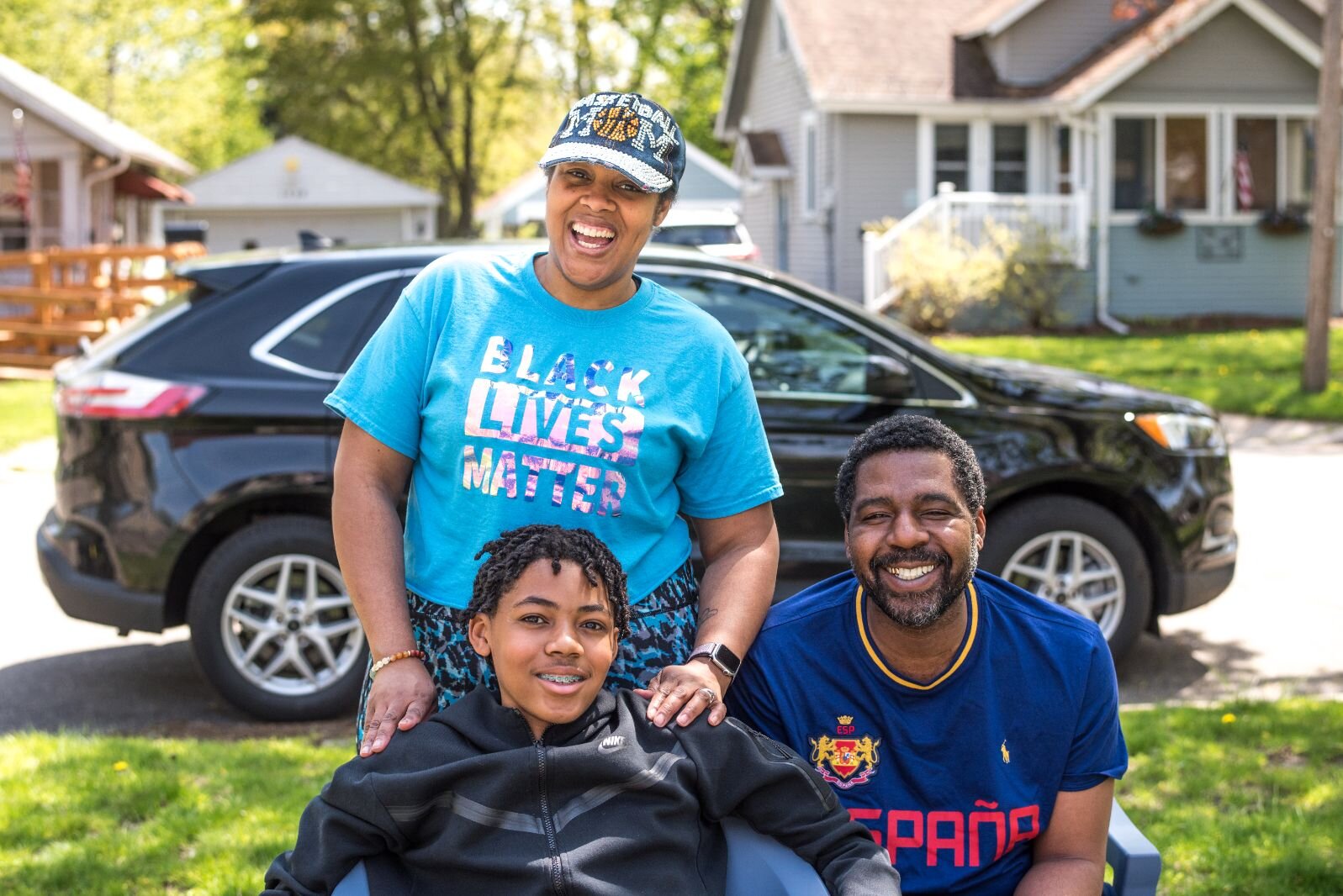
Of course, he wants better for his son.
DJ just has one thing to say about what he went through, “It was pretty scary.” He’s now a freshman at Kalamazoo Central, his favorite subject is world history, and he’s a triathlete in basketball, cross country, and track.
Age of reason, fees, fines, and diversion
Wallace says there are other youths involved with the Fellows who’ve ended up in worse situations. She told the story of a 14-year-old who defended herself “in an abusive home situation, but because children by law are not allowed to defend themselves, it’s the parents who have absolute control,” she says.
“She had to pay these juvenile fines and fees, which of course mom’s not going to pay, and I don’t know how many 14-year-olds can pay hundreds of dollars in fees. So for her, that was something that was held over her head for about four years.”
The teen was detained, spent some time in the juvenile home, and was put on probation. There was always the possibility that by not paying court fees, the girl could’ve been sent “back to juvie… Those are the kinds of threats that would be idly levied at her,” she says. “That really impacted her ability to go to school, her ability to congregate in the community, because it impacts her mental health, her anxiety.”
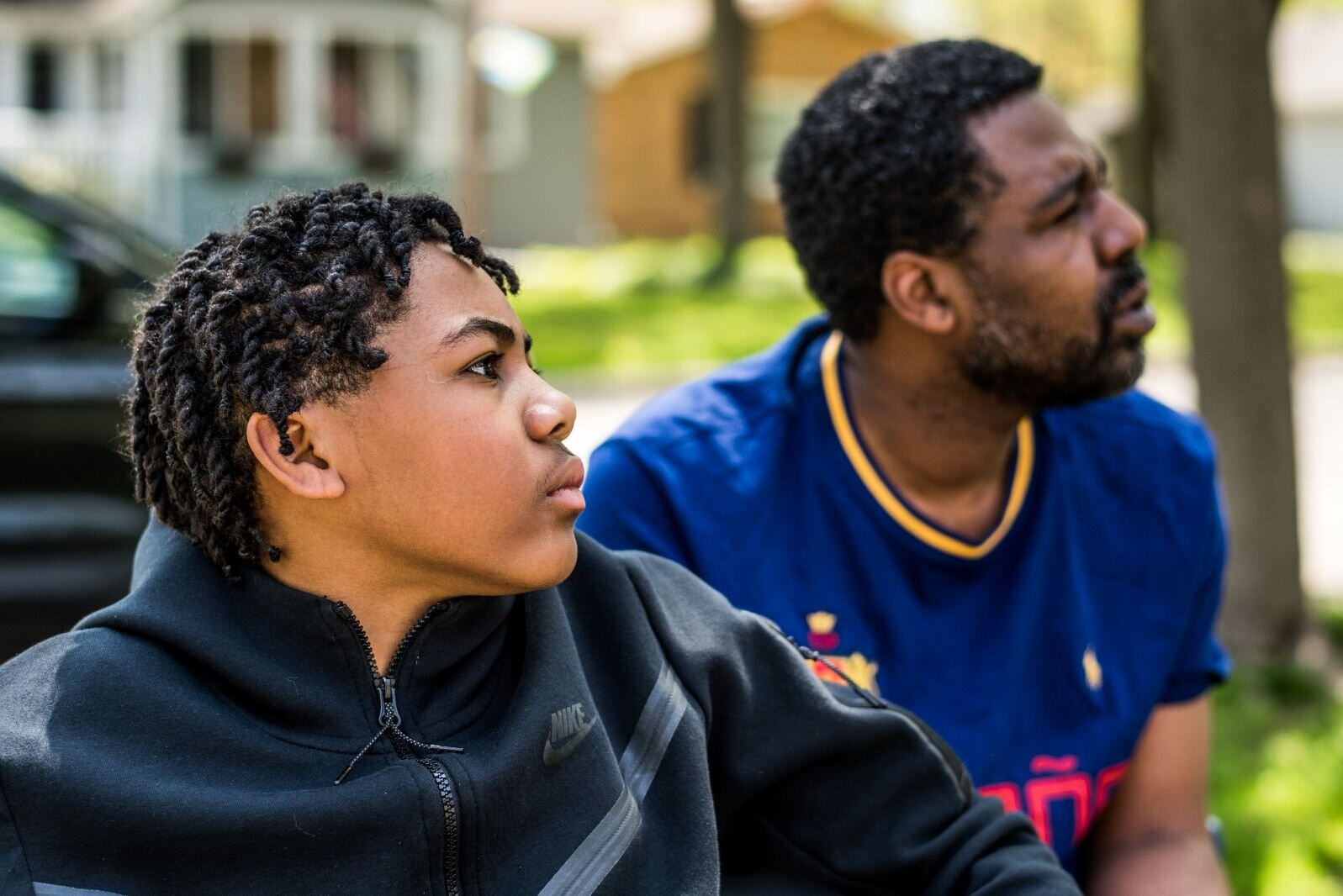
The key issues the Fellows are focused on are the age of reason, fines and fees, and, “expanding the offenses that are eligible for diversion,” Wallace says.
If a child seven or above does bad, “instead of sending police to go pick them up, to arrest them, what are some of the other diversion options that we have? If police can make a determination or decision at the time of arrest, and they have a diversion option, then that means you don’t have to arrest that child. You don’t have to book them, to send them into the system, you don’t have to harm them in that way,” Wallace says.
Fellows is partnering with Gryphon Place to find diversion methods “on that initial stage of arrest decision point,” Wallace says, to get children into programs that might help them, instead of getting them, as Dontray said, “booked and cooked.”
They are also looking at the Cafe Momentum model as a method of diversion, Wallace says. In three cities, the restaurants operate as a paid internship program for justice-involved youth ages 15-19, where they learn both work skills and life skills.
The Fellows have visited the original Cafe Momentum in Dallas, Texas, and is planning a visit to the new Cafe in Pittsburgh, Pennsylvania, soon. “This is the model that we need” in Kalamazoo, Wallace says.
‘Boys will be boys, unless they’re Black boys’
“Again, we’re talking about offenses that are not the type of offenses that cause irreparable harm or injury to the community, right? We’re talking about larceny, burglary, even in some instances, motor vehicle theft,” Wallace says.
“Some of these things are kids doing really stupid stuff.”
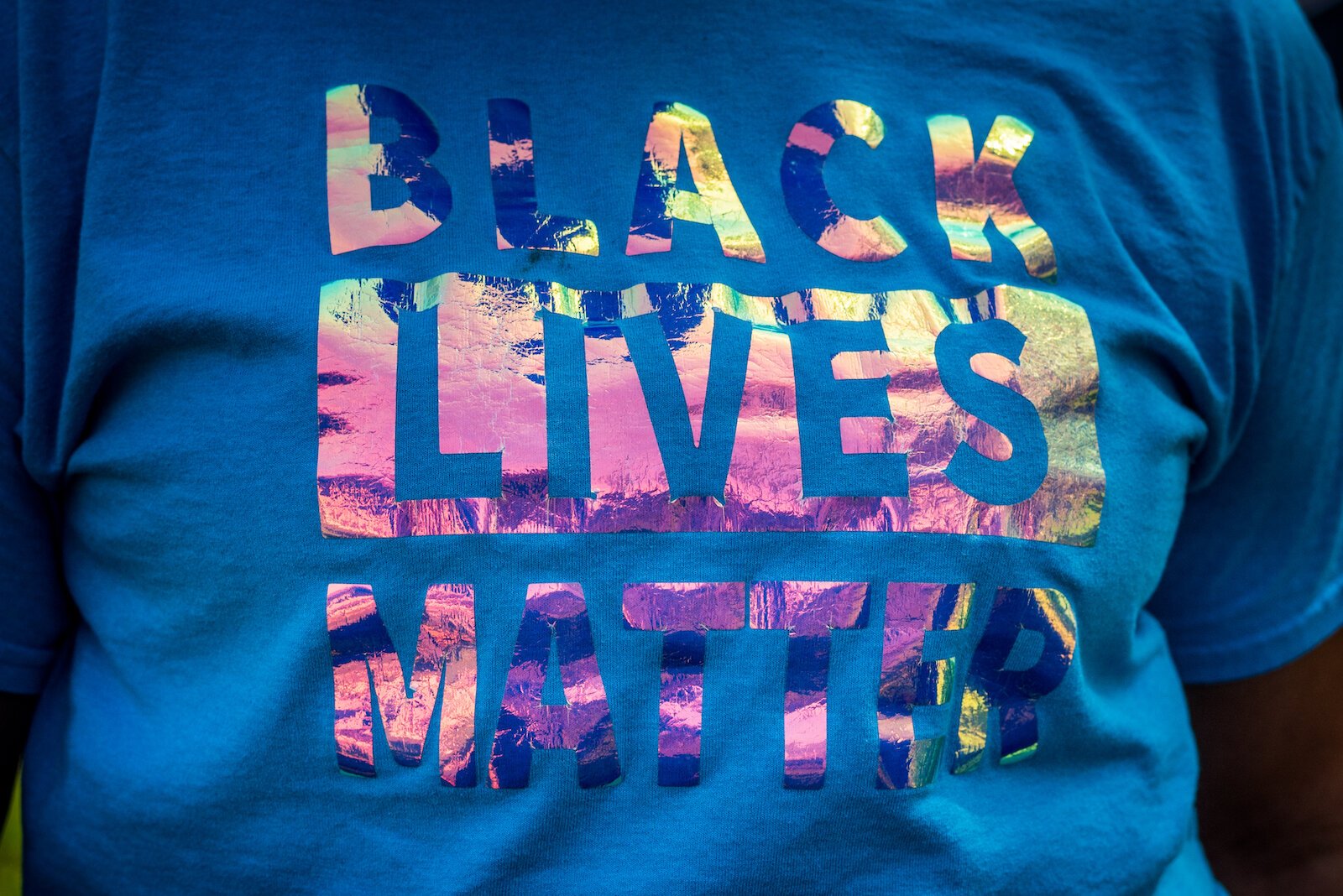
There’s long been an understanding that, aside from major crimes, youth from seven on up into their teens tend to do “really stupid stuff.” They have difficulty controlling their impulses. Peers can lead them into petty crimes. Their environment, home, neighborhood, and school, can be a factor.
Young participants in a fight, or engaging in vandalism, underage drinking, shoplifting, etc., might be given some wiggle room with that old saying, “Boys will be boys.” But might some youths get more wiggle room than others?
“That’s exactly it. Boys will be boys unless they’re Black boys, and then they become criminals,” Wallace says.
“For a lot of youth of color, it goes to trial instead of a diversion option,” she says.
A child is arrested and brought into the system because they’re expected to “have control over the choices and decisions they make… But here’s the thing, one thing we’ve learned as a part of our Youth Juvenile Justice Fellows program, is that the law is really unique, and provides disparate access based on people’s socio-economic status, parentage, and race.”
The numbers in Kalamazoo, she says, “are alarming. In Kalamazoo. African-American people make up about 11.8% of the population, yet Black youth account for 64% of arrests in Kalamazoo County, compared to 30% of white youth.” (Source is a study by the Michigan Center for Youth Justice.)
Dontray Hemphill says, “I decided to stay in this work because I’ve seen the way that systematic racism is real. People like myself have to be heard when it comes to this fight for the community and kids.”
Taking it to Lansing
In May 2022, the Fellows went to the State Capitol to advocate for juvenile justice reform.
This May 23, they’re returning.
“Going to Lansing, that’s a big deal!” Wallace says. Especially for youth who are too young to vote, but not too young to be arrested.
Last year they met with state representatives, and representatives of Gov. Gretchen Whitmer’s office. “Some of our Fellows were able to share their thoughts and opinions and contribute” to Whitmer’s task force on Juvenile Justice reform.
The task force released a blueprint in July 2022, “for transforming juvenile justice statewide.” It included expanding diversion opportunities for youth who are not a public safety risk and increasing funding for community-based programs and alternatives to incarceration.
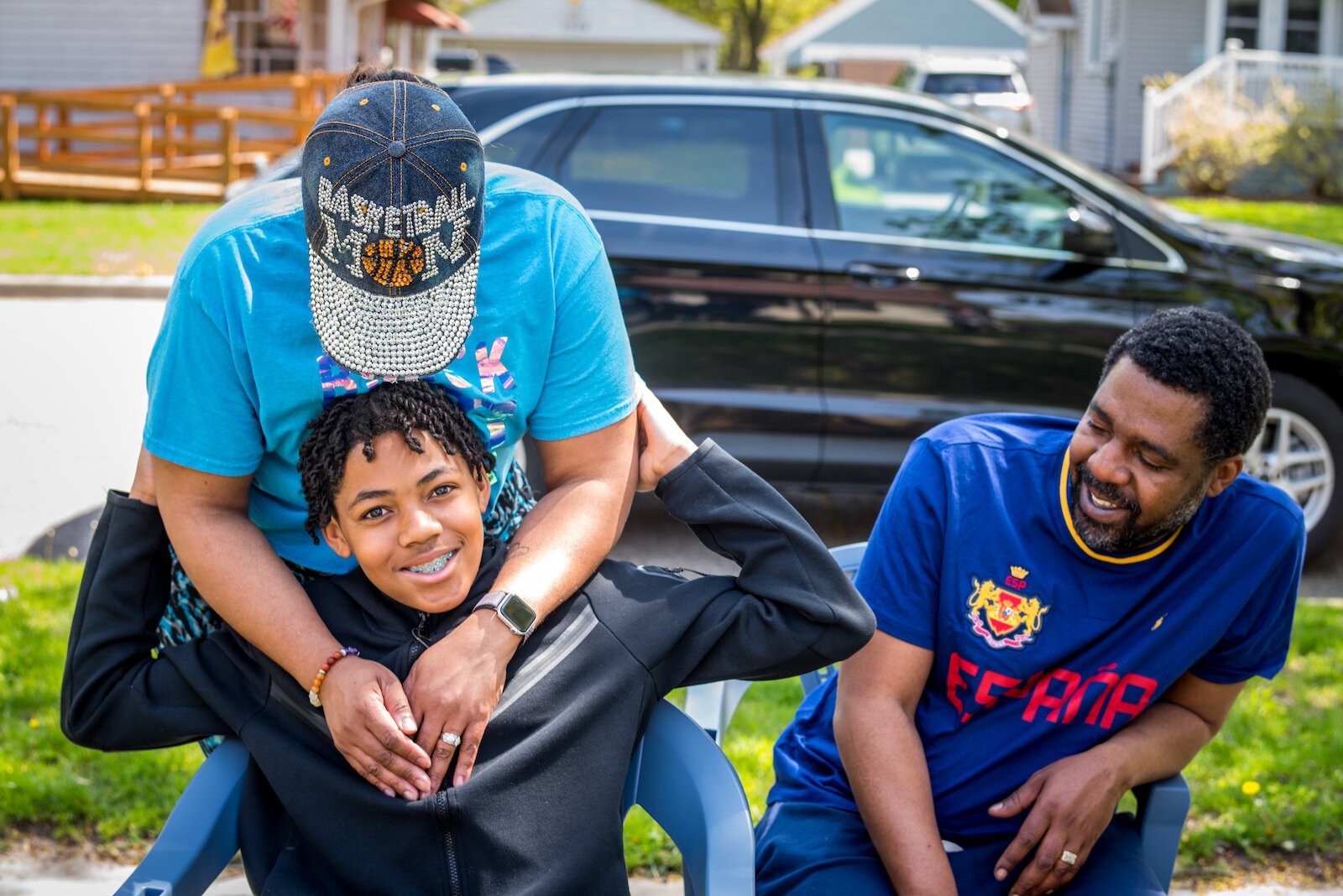
One of the Fellows was also invited to a national juvenile justice task force, and spoke to staffers from the White House about their experience in the system, Wallace says.
The youth in the Fellows are learning what advocacy is all about, she adds. “That’s a pretty big deal… They can be the expert in space, and people listen — That’s the first time people really listened to what they had to say.”
Marginalized youth traditionally don’t have access to the powers that be. “Not a single one of our fellows has ever been to Lansing before, and been to the Capitol, in that capacity, ever. Ever! That was huge.”
Dontray and DJ Hemphill presented their story to Lieutenant Governor Garlin Gilchrist last year. Ebony Hemphill was part of a diversion advisory group put together by Gov. Whitmer.
“Policy change is where it’s gotta happen,” Ebony says. “Instead of us talking about it, what can we do about it?”
Dontray and DJ are planning to be in Lansing again on May 23.
“The more they see your face and hear your voice, they start to listen to you,” Dontray says.
About the Youth Juvenile Justice Fellowship Program:
“Our work connected to poverty reduction, the impact of mass incarceration, and disrupting the school-to-prison pipeline has always included a juvenile justice lens,” says Dr. Luchara Wallace, director of WMU’s Lewis Walker Institute in a press release. “Incorporating juvenile justice into this portion of the institute’s work has allowed us to be more responsive to current issues and events and to also develop programming that is more inclusive to the needs of our community.”
The Lewis Walker Institute launched its first cohort of the Youth Juvenile Justice Fellows in 2021. The second cohort of fellows is wrapping up its work this spring. Supported by a grant from the Public Welfare Foundation, the transformative yearlong program aims to empower youth and families who have had direct or indirect involvement in the justice system with the tools to become advocates for justice.
To learn more, click this LINK.

